RBS smashes expectations with £940m profit
State-backed bank celebrates half-year success, but shadow hangs over rest of year
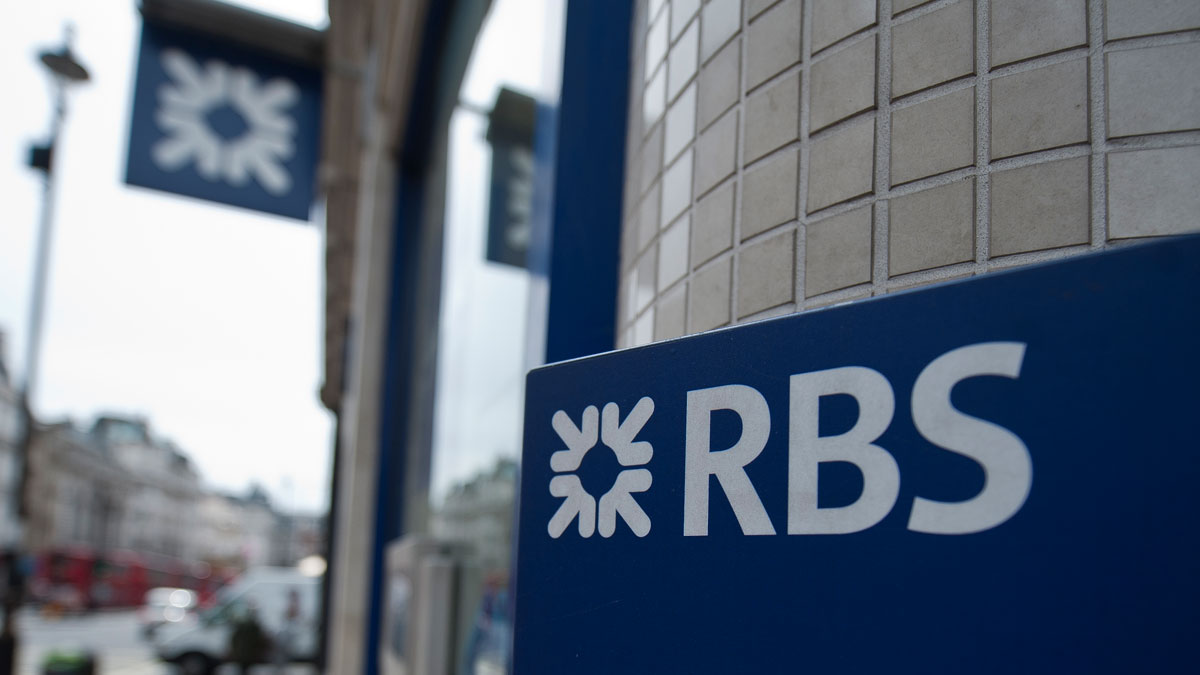
A free daily email with the biggest news stories of the day – and the best features from TheWeek.com
You are now subscribed
Your newsletter sign-up was successful
RBS 'to be cleared' over small firms allegations
31 October
Royal Bank of Scotland is to be cleared over allegations it deliberately put firms into financial distress or caused them to go bankrupt, says the Sunday Telegraph.
"Senior bosses" at the bank intimated an ongoing investigation by the Financial Conduct Authority (FCA) will be published "in weeks not months" and "will show the most damaging allegations… are unfounded".
The Week
Escape your echo chamber. Get the facts behind the news, plus analysis from multiple perspectives.

Sign up for The Week's Free Newsletters
From our morning news briefing to a weekly Good News Newsletter, get the best of The Week delivered directly to your inbox.
From our morning news briefing to a weekly Good News Newsletter, get the best of The Week delivered directly to your inbox.
The regulator commissioned an inquiry into the bank's global restructuring group in 2013, after a government adviser alleged it had artificially pushed small businesses over the edge to boost profits and claim assets.
Earlier this month, Buzzfeed and the BBC published details from a leaked cache of emails showing firms had been placed into restructuring even if they had not defaulted on loans.
The documents also revealed that RBS bosses considered the arm a profit centre and, under a drive called Project Dash for Cash, encouraged staff to seek out ways to charge hefty fees.
RBS insisted the revelations did not extend to deliberately pushing firms into bankruptcy, saying the unit "did not always meet our own high standards", but the documents offered no evidence "the bank artificially distressed otherwise viable SME businesses".
A free daily email with the biggest news stories of the day – and the best features from TheWeek.com
Since the emails' publication, pressure from MPs and others has been growing on the FCA to publish its report, which had originally been due to be issued last year.
The Financial Times today reports that based on disclosures from "people who have seen the report", it has found "no firm evidence" that RBS "deliberately pushed small businesses into bankruptcy for its own profit".
But the paper says: "However, while the most serious allegation may not be borne out, the report still makes sorry reading for RBS, those people added."
The report, which has been undertaken by consultants Promontory Financial Group and auditor Mazars, will go to the FCA before publication to establish if there were rule breaches.
It will be a boon for the bank if the worst allegations are dismissed as it is facing a number of legal actions over past wrongdoing. However, that does not mean it is fully in the clear and it could still suffer a financial hit.
'Noisy' RBS results take 2016 loss to £2.5bn
28 October
Royal Bank of Scotland has released another set of what its chief executive called "noisy" results, reporting a year-to-date loss of £2.5bn, says The Guardian.
The bank also slumped to a bigger-than-expected third-quarter loss. The £469m fall was more than double the £231m analysts predicted, says the Daily Telegraph.
RBS's detailed financial statement says around £1.2bn of the year-to-date loss was related to March's purchase of a "dividend access share" owned by the government since its 2008 bailout.
This was created to prevent the bank paying any dividends to private investors before it had returned a certain amount to the Treasury and its buyback was seen as an "important milestone" by analysts.
Stripping out this cost and other payments to non-ordinary shareholders reduces the 2016 loss to £941m, while taking out a big tax hit takes it to a modest £19m.
Close to £600m of the tax hit came in the third quarter, says the Financial Times. Without this and several carried-forward losses, the bank actually posted a pre-tax profit of £255m - up from a loss of £14m for the same period last year, when the overall profit came in at more than £1bn as a result of RBS selling its US arm, Citizens.
Chief executive Ross McEwan noted operating profits of £1.3bn for the most recent three months, which is the best return for two years. The average quarterly underlying profit in the last year-and-a-half is now £1bn.
"We've said that 2015 and 2016 would be noisy as we work through legacy issues and transform this bank for customers. These results reflect that noise," McEwan said.
Investors seem to agree and RBS's share price was up 0.6 per cent to 196.5p this morning. They will also have been buoyed by the news that the bank's capital reserve ratio has risen to 15 per cent.
However, there will be concerns over the bank's admission that it will fail to meet a European Commission deadline to offload its Williams & Glyn unit by the end of next year.
RBS: Why taxpayers are facing a £30bn loss
18 October
Royal Bank of Scotland (RBS) is fast becoming the bete noire of the UK's 2008 banking sector bailout.
Lloyds, the other rescued bank, is almost fully back in private hands and could now be offloaded without incurring a taxpayer loss at a fraction of its current share price.
Even the toxic loan books the government split into a "bad bank" are well on the road to returning much of what was spent on them.
Most of the old Northern Rock portfolio was syndicated and sold last year, while the loan book relating to Bradford & Bingley is being lined up for a £16bn disposal over the coming months.
The odd one out is RBS. Only six per cent of its shares have been sold so far in a process last year that crystallised a £1bn loss and still left the government with a 73 per cent stake.
The chances of full privatisation happening any time soon have receded fast since the Brexit vote. Since then, a share price that was already almost 25 per cent down on last year's 330p sale level has slumped by a further 30 per cent.
At yesterday's price of 170.5p, the remaining taxpayer stake would be valued at £15bn. Add in the £2.1bn already realised and you're close to £30bn shy of the £46bn cost of the 2008 bailout.
RBS will be formally revalued by the Office for Budget Responsibility in time for the Autumn Statement next month, says The Times.
Chancellor Philip Hammond said earlier this month that a "disposal of the RBS shares at a price that recovers the taxpayer's investment is not practical at the moment".
He added that a "sensible investment strategy" would be to hang on until the bank spins out its Williams & Glyn unit and settles a multibillion-pound fine in the US relating to pre-crash sales of mortgage-backed securities.
But perhaps that's not the right approach, says Jonathan Guthrie in the Financial Times.
Even with expectations "recalibrated" to last year's 330p sale price, "the chances are low of the stock revisiting those levels during the current geological era", he says.
Guthrie argues the government should give consumers a boost and remove the bank from "the neck of government" by distributing shares to the public.
"That would depoliticise RBS and remove a stock overhang," he says, while the "writedown would be small compared to the implicit cost of quantitative easing".
Treasury denies 'insider dealing' over RBS share sale
13 October
The Treasury and Financial Conduct Authority (FCA) have denied an allegation of "insider dealing" in relation to the sale of Royal Bank of Scotland (RBS) shares.
Last summer the government sold its first tranche of shares in the majority state-backed bank, offloading £2.1bn and in the process crystallising a £1bn loss to the taxpayer.
Before it did so one of the Treasury's top civil servants asked for – and was provided with – confidential information from the FCA on when it might publish a potentially critical report into RBS's treatment of small businesses.
The revelation is contained in a series of internal emails obtained by BuzzFeed News through a Freedom of Information Act request.
Earlier this week a cache of documents leaked to BuzzFeed and the BBC exposed that RBS had intentionally "squeezed" struggling smaller companies for profit in the wake of the financial crisis.
The practices of the bank's Global Restructuring Group had been the subject of a complaint by a government adviser in 2013. The FCA was subsequently commissioned by the then Department for Business Innovation and Skills to conduct a review.
Although the "timeline" the FCA gave the Treasury did not reveal any details of its pending report, it was expected to be critical and "could have sent the share price plummeting".
Of course, if it had broadly exonerated the bank the share price could have been sent markedly higher. Tom Scholar, permanent secretary to the Treasury, told MPs yesterday that the FCA disclosure contained no price sensitive information.
The watchdog's report has been delayed a number of times and has still not been published.
According to The Times, Scholar said "correspondence would only have constituted insider information if the Treasury had been given information about the nature of the FCA's findings".
He also claimed that the request was explicitly intended to ensure the Treasury "did not proceed with a sale with any inside information".
But the fact that the information provided was not in the public domain, and that the FCA previously refused a similar request from the Business department, has rankled some MPs and could give rise to more scrutiny.
John Mann, the Labour MP and Treasury committee member, says that one of the email exchanges "references the chancellor and his interest in the area".
He added: "So we have a politician clearly pressuring in relation to [obtaining] this information. Some might call that insider dealing."
RBS bosses to be be hauled before MPs again
11 October
Royal Bank of Scotland bosses could be set to face another grilling from MPs over the bank's treatment of small business customers in the wake of the financial crisis.
Executives appeared before a parliamentary committee in 2014, following allegations from a government adviser that RBS had deliberately caused companies financial distress to boost its own bottom line.
The allegations were strenuously denied, but never went away. Legal actions brought by several companies are ongoing and an independent report is currently under review by the Financial Conduct Authority.
Now a cache of leaked emails has blown the lid on the scandal again – and provoked outrage among MPs, who feel they were "misled" two years ago.
The revelations claim the bank, struggling with a toxic loan book and a funding shortfall in the wake of the financial crash, demanded staff search for business customers whose loans could be refinanced in return for hefty fees or cheap asset transfers.
Beyond this drive, named "Project Dash for Cash", there are suggestions customers were placed into its restructuring division for reasons other than financial distress.
MPs are also angry that the executives told them the restructuring unit was "not a profit centre". The documents prove otherwise - in one year, the division made £1.2bn in fees over and above costs and writedowns.
"The impression I get is that we were badly misled and we cannot have government being misled on an issue which is of utmost importance to the economy and people's trust in banking," Steve Baker, a Conservative MP on the Treasury select committee, told the Telegraph.
"The leaks today illustrate the need for the FCA to get on with publication as soon as possible," said committee chairman Andrew Tyrie.
Labour MP and committee member John Mann told Buzzfeed News: "This is the biggest single scandal since the 2008 crisis. RBS executives will have to be called back to the committee to account for themselves and heads will have to roll."
Fellow member George Kerevan of the SNP added: "I think it would be advisable for RBS to volunteer to come back towards the committee rather than be called before us."
-
 Why is the Trump administration talking about ‘Western civilization’?
Why is the Trump administration talking about ‘Western civilization’?Talking Points Rubio says Europe, US bonded by religion and ancestry
-
 Quentin Deranque: a student’s death energizes the French far right
Quentin Deranque: a student’s death energizes the French far rightIN THE SPOTLIGHT Reactions to the violent killing of an ultraconservative activist offer a glimpse at the culture wars roiling France ahead of next year’s elections
-
 Secured vs. unsecured loans: how do they differ and which is better?
Secured vs. unsecured loans: how do they differ and which is better?the explainer They are distinguished by the level of risk and the inclusion of collateral
-
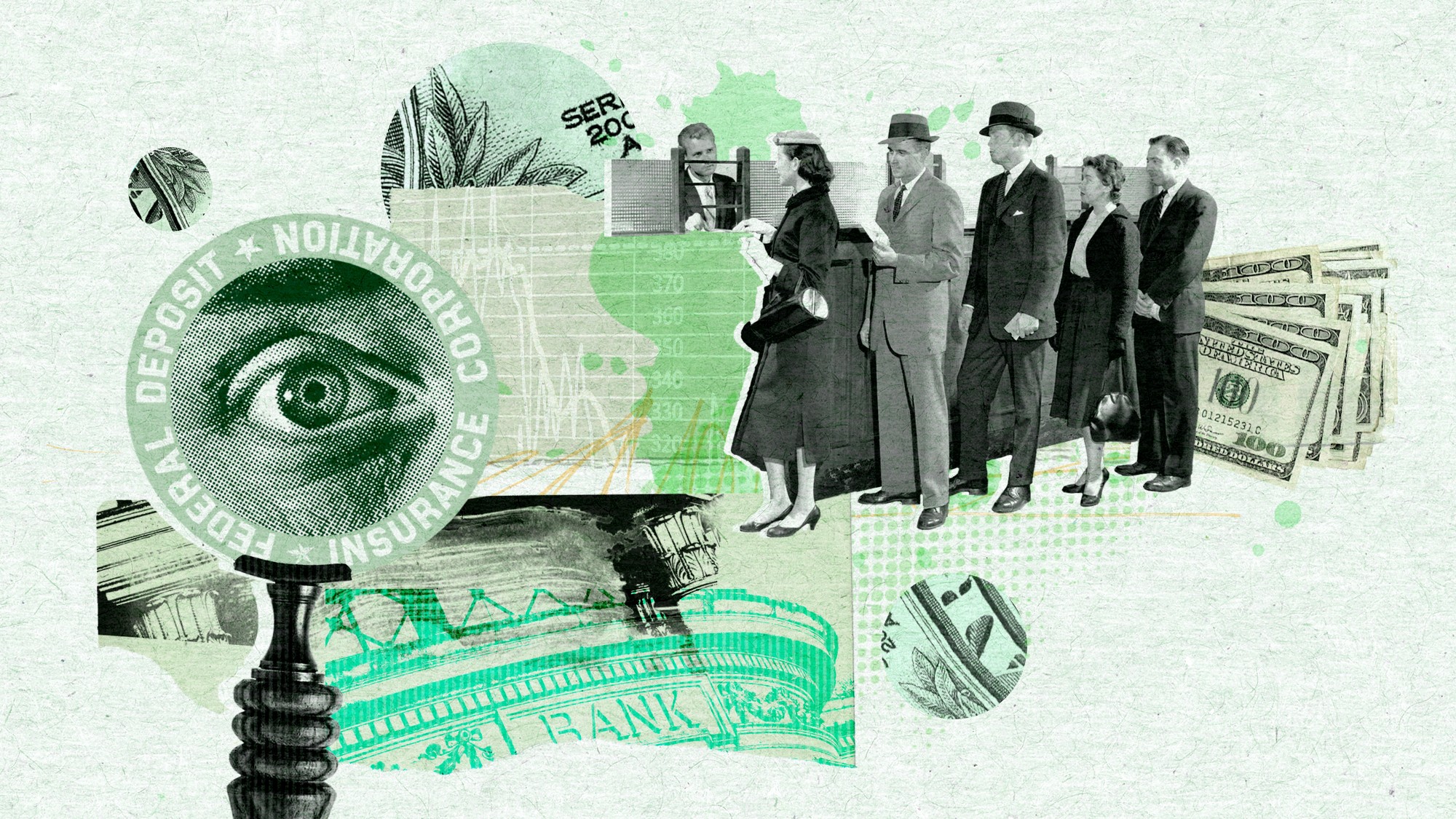 What does the FDIC do?
What does the FDIC do?In the Spotlight The Federal Deposit Insurance Corporation is now a 'Trump target'
-
 TD Bank accepts $3B fine over money laundering
TD Bank accepts $3B fine over money launderingSpeed Read The US retail bank pleaded guilty to multiple criminal charges
-
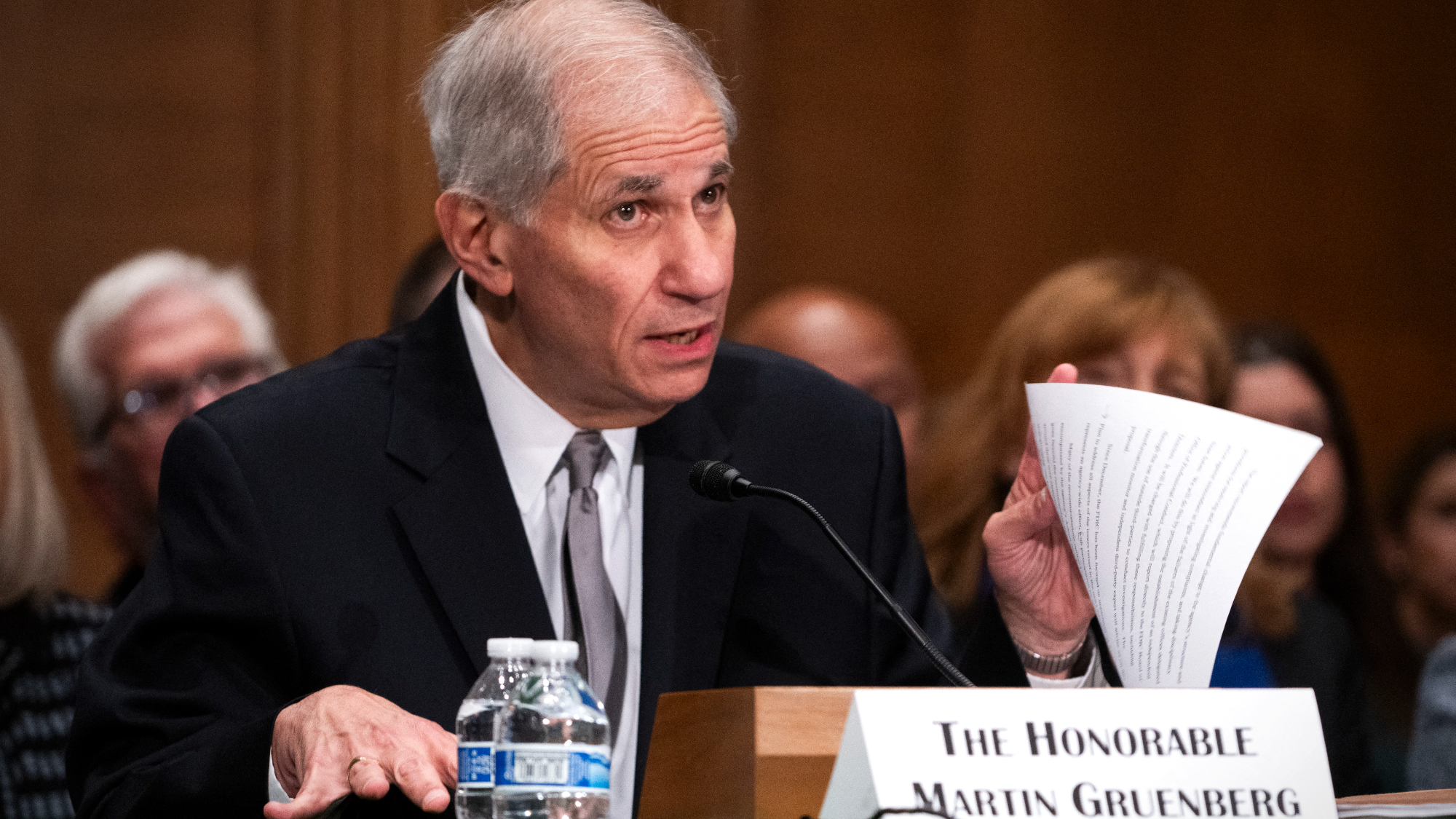 FDIC chair out after toxic work culture report
FDIC chair out after toxic work culture reportSpeed Read The report revealed a trend of sexual harassment and discrimination at the Federal Deposit Insurance Corporation
-
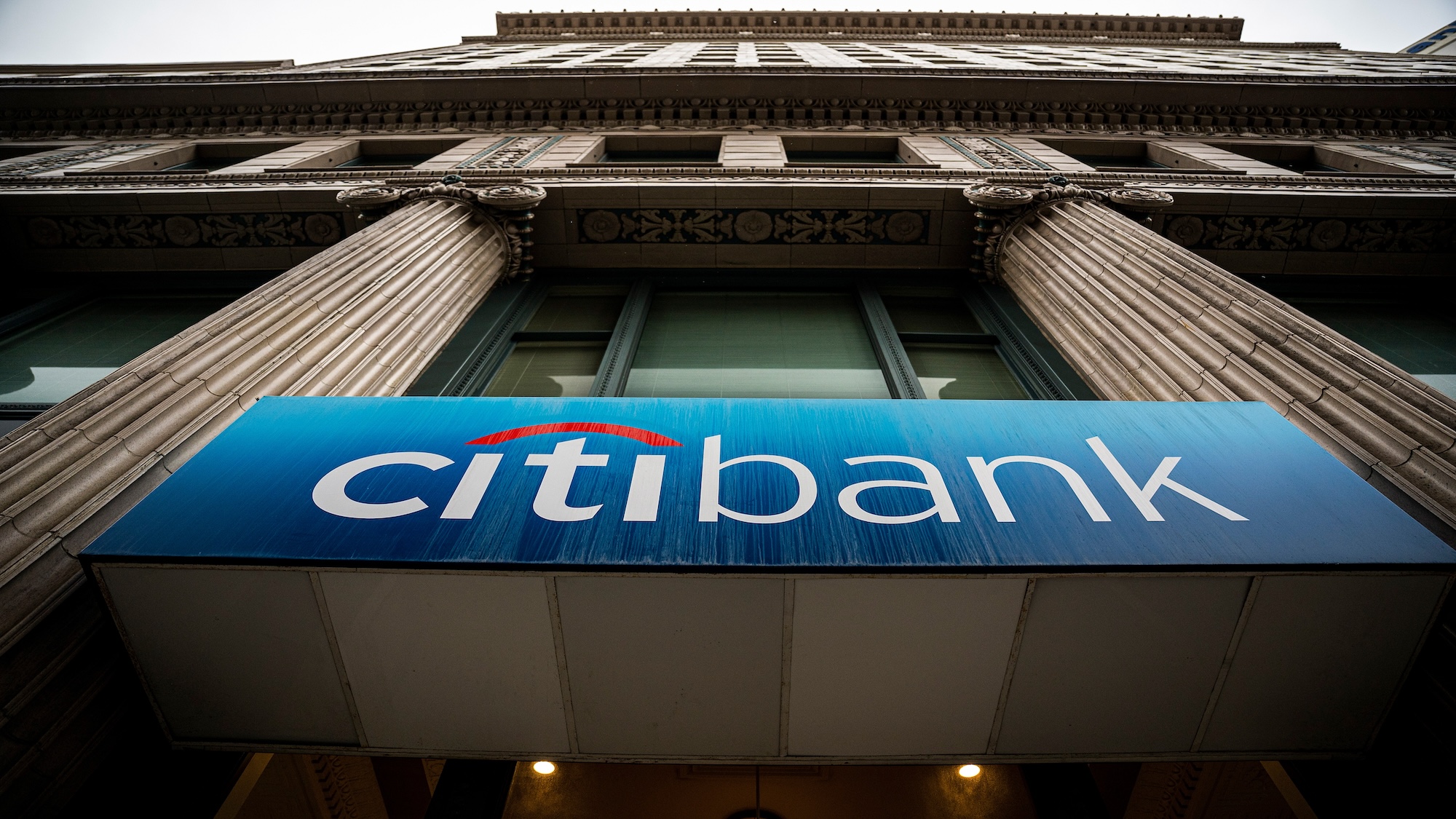 Citibank to cut off online access for customers who don't go paperless
Citibank to cut off online access for customers who don't go paperlessSpeed Read The bank will shut off the customer's access to both their online website and mobile app
-
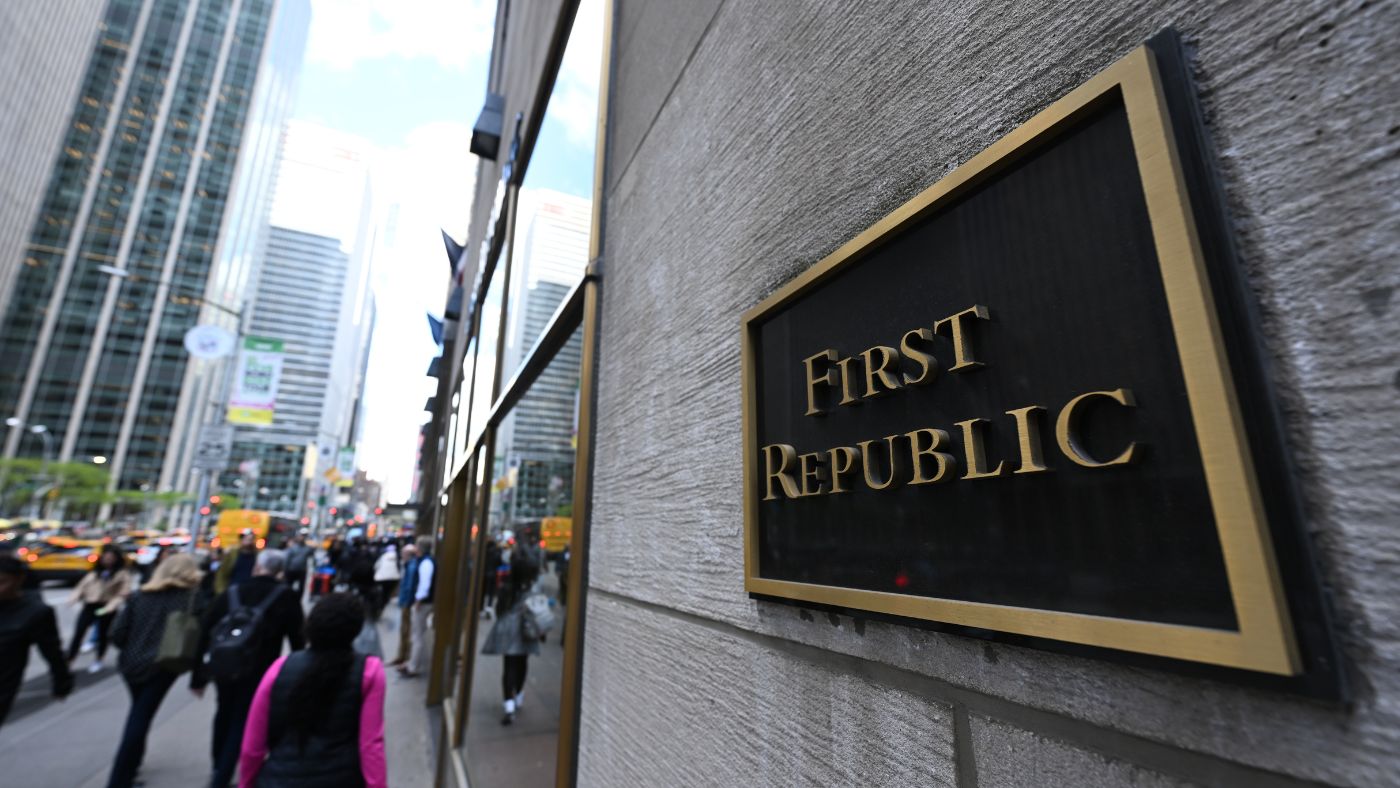 First Republic: will UK banks survive unscathed?
First Republic: will UK banks survive unscathed?Under the Radar US shares dip after collapse of third regional bank, but experts say contagion to the UK is unlikely
-
 Banking crisis: has the city weathered the financial storm?
Banking crisis: has the city weathered the financial storm?Talking Point The financial storm appears to have abated, but no one’s ruling out more squalls along the way
-
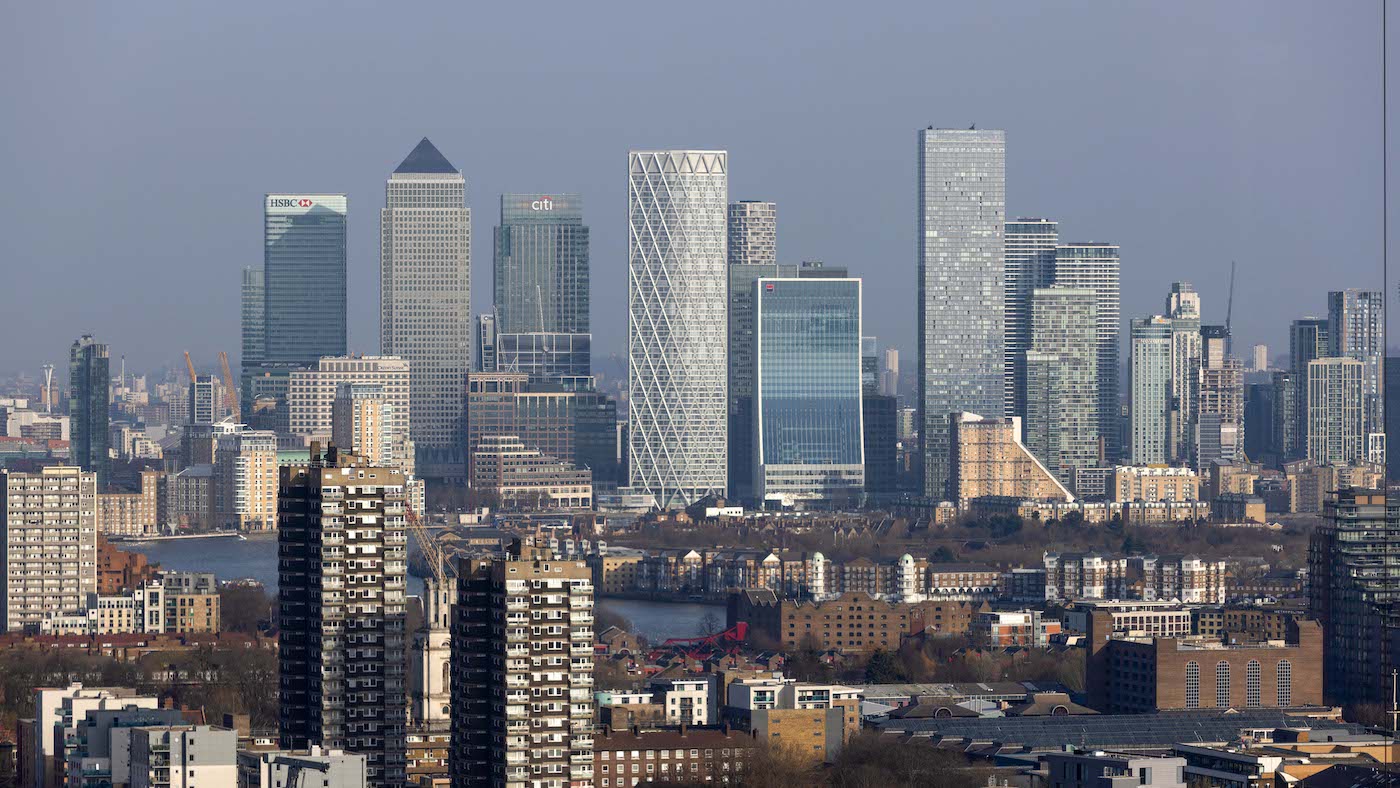 Should the UK relax bank ring-fencing rules?
Should the UK relax bank ring-fencing rules?Talking Point Treasury minister said he hopes to ‘boost competitiveness’ in the City with easing of regulations
-
 Should caps on bankers’ bonuses be scrapped?
Should caps on bankers’ bonuses be scrapped?Talking Point New chancellor Kwasi Kwarteng believed to be planning contentious move to ‘boost the City’